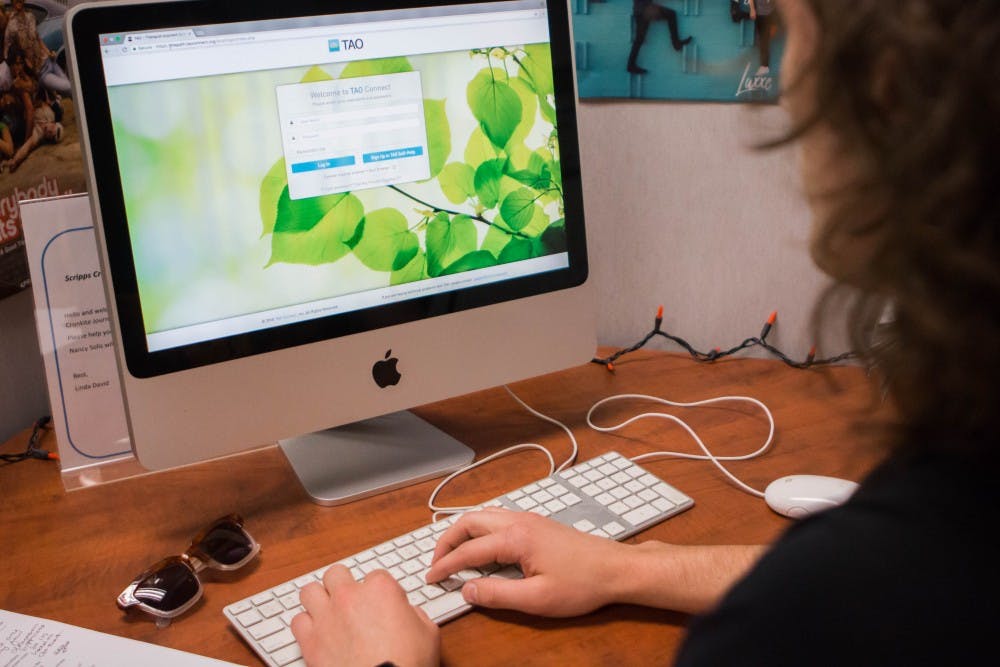In an effort to bring students better access to therapy and mental health support, ASU is working with TAO Connect to bring a digital therapy program to campus.
TAO, which stands for Therapy Assistance Online, provides online modules, exercises, journals and HIPAA compliant video conferences. The program also has an app that allows students to access the materials from their phones, as well as a notification system that includes “individualized reminders, suggestions, and encouragers,” according to TAO Connect’s website.
TAO Connect is free for all ASU students and just requires a simple sign up using an ASU email.
The online platform aims to provide support with subjects like stress reduction, depression, substance use and relationships.
A TAO Connect spokesperson said the partnership came out of expansions to ASU's student health services.
Aaron Krasnow, associate vice president for ASU Counseling Services and Health Services, said TAO Connect was created to be suited to college students and is completely self-paced, self-guided and personalized.
“Face-to-face counseling isn’t for everyone,” he said. “For many students, this is exactly what they’re looking for.”
Krasnow said the launch of TAO Connect is an important stepping stone for the growth of the University counseling and health services.
“This is a major step in an important direction for the University,” he said. “We are continuing to resource not just direct services like counseling and health, but we are looking broader and saying ‘What does everyone need?’”
TAO Connect officially launched in January and has been rolled out through various soft launches over the last six weeks. Nearly 200 students have signed up for the program since its debut, Krasnow said.
Sherry Benton, the founder and chief science officer of TAO Connect, said she saw a need for student-focused therapy services when she realized how difficult it was for universities to provide an adequate ratio of counselors to students.
“There is a constant problem that (colleges) have way more people that are struggling and who need services and seek services than you can possibly accommodate,” Benton said.
This is a phenomenon that extends beyond Arizona universities.
As of 2014, there were 941 students per school counselor in Arizona, putting the state last nationwide in that metric, according to the American School Counselor Association. The recommended ratio from the ASCA is 250 to 1.
“If you have a student who is depressed and you put them on a waitlist for a month, that’s going to be the difference between thriving that semester and floundering,” Benton said. “We needed to get services and resources to people when they needed them, where they needed them and in a way that worked for them.”
Benton, who worked as the counseling center director at the University of Florida, said the program has been largely successful in all of its trials. She said ASU plans to roll out the program to all students in future semesters.
“With any of the schools using (TAO Connect) … they license TAO annually and they can use all of the resources any way they want," Benton said. “As I understand it, (ASU’s) feedback has been overwhelmingly pretty positive.”
Benton said ASU has found some technical issues with the app or online service, though not the content, that they requested be changed, and TAO implemented those changes.
“The entire way that TAO has been built is user feedback,” Benton said. “Students who use it do thumbs up, thumbs down (or a) star system on every part of it, every time to give us feedback.”
Sara Mavis, a senior majoring in social work and an executive in Active Minds, a student organization that works to destigmatize mental health issues, said the University does a good job of providing resources, but the addition of TAO Connect will help students who are under time constraints.
“(TAO Connect) is definitely one way to reach more students,” Mavis said. "(Students are) constantly on (their) phones or laptops, in class, or wherever ... I feel like something like that, like an app that I could have on my phone would be a lot easier."
Reach the reporters at Kimberly.Rapanut@asu and maatenci@asu.edu or follow @kimrapanut and @mitchellatencio on Twitter.
Like The State Press on Facebook and follow @statepress on Twitter.




